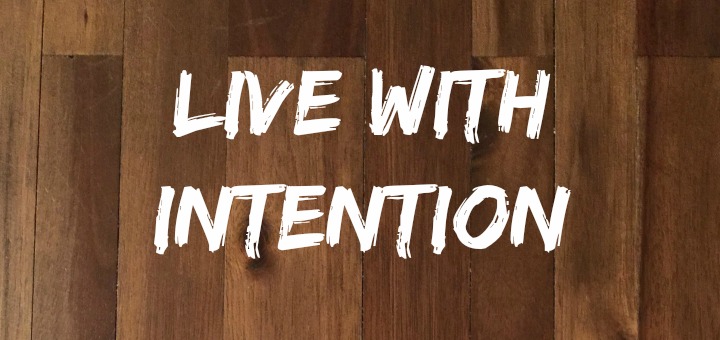It is that time of year. Summer is coming to a close, and Labor Day is right around the corner. The back-to-school, back-to-sports, back-to-busy-days time of year is nearing. And that usually means that we have to adjust our schedule — or actually create one. This process can often induce a couple of different reactions, depending on your personality. If you are a super-planner, you get jazzed and your new calendar gets a color-coded overhaul of when and where you do what. If you are not a planner (the word “agenda” makes your skin crawl), you immediately start flinching at the thought of being confined to a “rigid schedule.”
But I want to suggest an approach to our daily schedules that is neither rigid nor non-existent. I would call it living with intention. Being an intentional person is a lifestyle that encompasses much more than just how we schedule our time, but for now I’m just going to apply this concept to how we intentionally schedule activities. Being intentional does require some amount of structuring our time (sorry, free-spirits, if that is not what you wanted to hear), but that doesn’t mean creating rigid schedules that don’t allow for buffer time or flexibility to enjoy the activities and people that pop-up unexpectedly.
Intentional scheduling reserves your time for the most important things, giving them priority and space to thrive. It is not restrictive and should not be overwhelming — it should be freeing and a source of joy and peace for you and your family. I don’t think I have to “sell” being intentional about our time to anyone reading; it’s intuitive. Yet, I think it is all too common for people who want to live more intentional lives to be inert, unable to identify the first step toward that goal. What prevents us from creating an intentional structure and rhythm for daily life? A couple of culprits come to mind.
Culprit #1: We don’t know what our priorities are.
There may be many passing ideas — good ideas — of how we want to spend our time and the realization of things we want to accomplish. But we haven’t taken time to assess and anchor all of those ideas that flow in and out of our minds. We could randomly come up with a lot of good activities, but we haven’t taken the time to identify the things and people that are the most important in daily life. If we haven’t done that, then we don’t actually have priorities.
Without identifying the priorities in your life, you will never be able to live intentionally. Ask yourself: “What are the most important things? What has God inspired me to do?” Whatever those are, they should come first; and you should do them well. They are your compass, your guide for how to allot your time.
Culprit #2: We aren’t realistic about the time we need.
I have been so guilty of this; but I have improved a lot over the years (much thanks to my husband modeling more realistic expectations about what can be enjoyably accomplished in a day). We try to cram so much in, don’t we? Why? You would think that the feelings of exhaustion and lack of joy would teach us our lesson. We can actually get confused about what we like doing, simply because we haven’t given ourselves the adequate space to do it.
Culprit #3: We give the “time bandits” open access to our schedules.
Maybe you know what your priorities are, but you are not vigilant in protecting them. Ask yourself: “What is it that is sabotaging my priorities?” What is the first thing you do when you have two minutes free, when you are in a waiting room, when the house is quiet? That may likely be a time bandit. Most people who complain about not having enough hours in a day for the important things somehow log substantial hours surfing the web, scrolling through their phones on social media, and watching television in a given week. Assess the activities that you are allowing to steal your time.
The upcoming season of life doesn’t need to be “busy” or “hectic;” it can just be full — intentionally full with all of the right things. Intentional living isn’t easy — self-sacrifice and stretching yourself (in a good way) is involved — but it is rewarding and brings the assurances of joy and peace to your daily routine.

